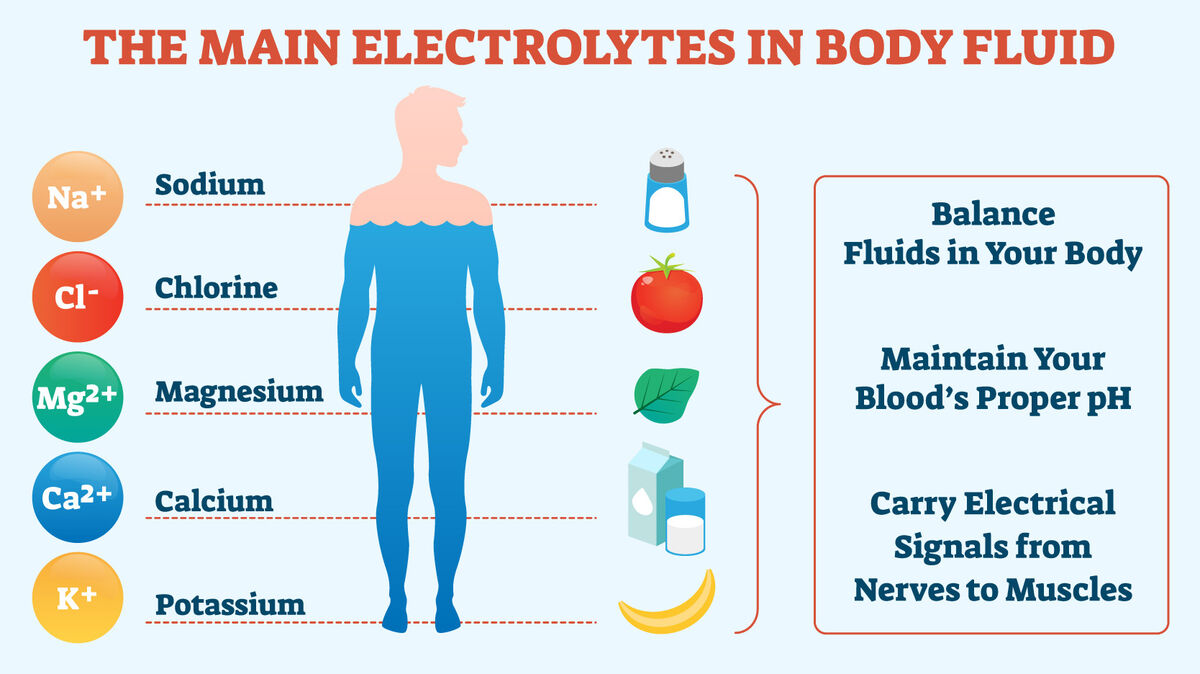Which electrolyte is associated with a change in pH of blood?
Calcium
Sodium
Magnesium
Potassium
The Correct Answer is D
Choice A: Calcium
Calcium plays a crucial role in various physiological processes, including muscle contraction, blood clotting, and nerve transmission. While calcium is essential for maintaining overall health, it is not directly associated with changes in blood pH. Calcium levels are tightly regulated by hormones such as parathyroid hormone (PTH) and calcitonin, but these do not significantly influence blood pH.
Choice B: Sodium
Sodium is a major extracellular electrolyte that helps regulate fluid balance, nerve function, and muscle contraction. Although sodium is vital for maintaining osmotic balance and blood pressure, it does not directly affect blood pH. Sodium levels are primarily controlled by the kidneys and hormones like aldosterone, which do not have a direct impact on the acid-base balance of the blood.
Choice C: Magnesium
Magnesium is involved in over 300 biochemical reactions in the body, including protein synthesis, muscle and nerve function, and blood glucose control. While magnesium is important for overall health, it does not have a direct role in altering blood pH. Magnesium levels are regulated by the kidneys and are essential for maintaining normal muscle and nerve function, but they do not directly influence the acid-base balance.
Choice D: Potassium
Potassium is a key intracellular electrolyte that plays a significant role in maintaining the acid-base balance of the blood. Changes in potassium levels can affect the pH of the blood. For example, hyperkalemia (high potassium levels) can lead to acidosis, while hypokalemia (low potassium levels) can lead to alkalosis. Potassium helps regulate the hydrogen ion concentration in the blood, which directly impacts the pH. Therefore, potassium is the electrolyte most closely associated with changes in blood pH.

Nursing Test Bank
Naxlex Comprehensive Predictor Exams
Related Questions
Correct Answer is C
Explanation
Choice A Reason:
Hyperplasia refers to an increase in the number of cells in an organ or tissue, usually resulting in an increase in the size of the organ or tissue. This process is often a response to a stimulus and can be physiological or pathological. However, hyperplasia does not involve the replacement of one cell type with another, as seen in this case.
Choice B Reason:
Dysplasia is characterized by abnormal growth and development of cells within tissues or organs. It often indicates a precancerous condition and involves changes in cell size, shape, and organization. While dysplasia can occur in the respiratory tract, it does not describe the replacement of one type of epithelial cell with another.
Choice C Reason:
This is the correct answer. Metaplasia is the process by which one type of adult cell is replaced by another type of adult cell that is not typical for that tissue. In this case, the normal columnar ciliated cells in the bronchial airway have been replaced by stratified squamous epithelial cells, a common adaptation in response to chronic irritation from smoking.
Choice D Reason:
Hypertrophy refers to an increase in the size of cells, leading to an increase in the size of the affected organ or tissue. This process does not involve a change in cell type, making it an incorrect choice for this scenario.
Correct Answer is D
Explanation
Choice A Reason:
To determine how much of the medication remains in the body after a certain period, we need to understand the concept of half-life. The half-life of a medication is the time it takes for the concentration of the drug in the bloodstream to reduce by half. For Medication A, the half-life is 3 hours. After 12 hours, which is four half-lives, the amount of medication remaining can be calculated step by step.
Choice B Reason:
Let’s break down the calculation. Initially, the patient receives 400 mg of Medication A. After the first half-life (3 hours), the amount of medication remaining is 400 mg ÷ 2 = 200 mg. After the second half-life (6 hours), the amount remaining is 200 mg ÷ 2 = 100 mg. After the third half-life (9 hours), the amount remaining is 100 mg ÷ 2 = 50 mg. Finally, after the fourth half-life (12 hours), the amount remaining is 50 mg ÷ 2 = 25 mg. Therefore, 375 mg is not a correct answer.
Choice C Reason:
Similarly, 150 mg is not correct. As shown in the detailed calculation, the amount of medication decreases by half every 3 hours. After 12 hours, the remaining amount is 25 mg, not 150 mg. This choice does not align with the half-life calculation.
Choice D Reason:
This is the correct answer. The step-by-step calculation shows that after 12 hours, which is equivalent to four half-lives, the amount of Medication A remaining in the patient’s body is 25 mg. This demonstrates the principle of half-life and how the concentration of a drug decreases over time.
Whether you are a student looking to ace your exams or a practicing nurse seeking to enhance your expertise , our nursing education contents will empower you with the confidence and competence to make a difference in the lives of patients and become a respected leader in the healthcare field.
Visit Naxlex, invest in your future and unlock endless possibilities with our unparalleled nursing education contents today
Report Wrong Answer on the Current Question
Do you disagree with the answer? If yes, what is your expected answer? Explain.
Kindly be descriptive with the issue you are facing.
